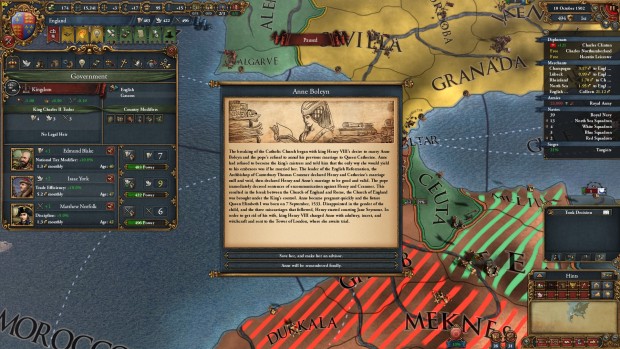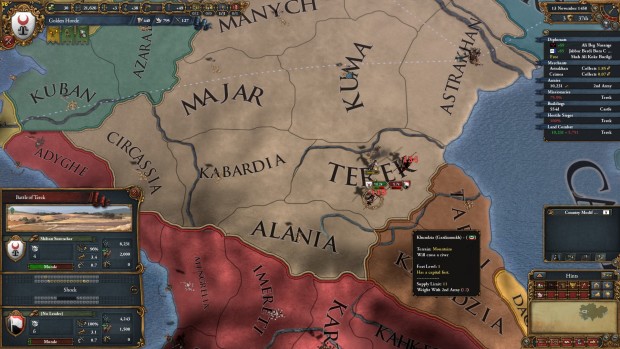Titles are a funny thing. The most recent Europa Universalis IV expansion, for instance, is titled “The Cossacks.” You would think, then, that the most important features of the update would relate to the Cossacks, and maybe other steppe tribes. And this update does focus some effort on those loose “nations,” deepening their play with some interesting chrome. Yet EU4: The Cossacks’ most important feature is one having nothing (or, at least, very little) to do with Cossacks, and instead builds out the most important feature to come in EU4 since launch: the Estate system.
Europa Universalis IV has always had an external sort of focus. The game revolved around external decisions: who to ally with, where to colonize, who to make war against and so forth. There are, of course, internal concerns- revolt risks and random events- but these largely seemed either arbitrary or easy to manage. Cossacks adds system to the madness, leaving you an actual society to manage. You’re not left with solely managing wars and expansion, your economy is largely dependent on your ability to manage the estates.
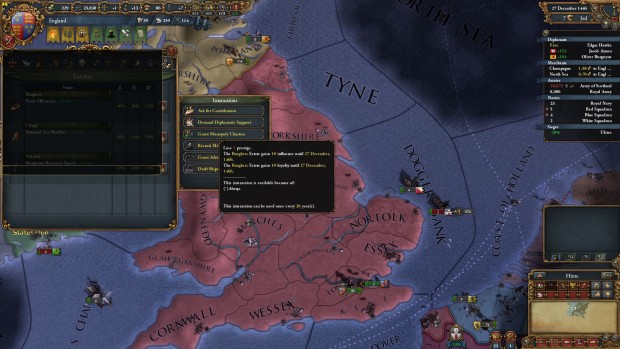
Which estates you have in your nation largely depends on who you play as. In my English/Great Britain playthrough, I had three: the clergy, the burghers, and the nobles. When I switched to the Golden Horde, I was left with only one estate, the Tribes. Each estate is rated for loyalty and for influence. Keeping the loyalty and influence sufficiently high will offer estate-dependent bonuses. Strong and loyal burghers will increase your trade values, and give you access to powerful chits to call in, like the ability to instantly build a small fleet. Time put into making sure your estates are strong and loyal can provide key reinforcements during wartime, or provide substantial boosts to your finances and settler abilities.
The trouble is, estates that get too influential will start to think that, maybe, just maybe, they don’t need the king anymore. Somehow, I allowed my English nobility to become too strong. As they fomented treason, I was forced to curb their influence by snatching provinces from their influence. This, of course, resulted in revolts, and several years spent battling against my own nobility instead of the evil French. On another occasion, my clergy, upset of my expansion of the burghers (or so I tell myself), became disloyal, resulting in a huge drop in my ability to collect taxes. So you see, there is a difficult balance to strike, you want your estates to be strong enough to help you, but not so strong that they become a threat. Some events force you to pick one estate over another, and as king I was constantly weighing the checks and balances of these decisions.
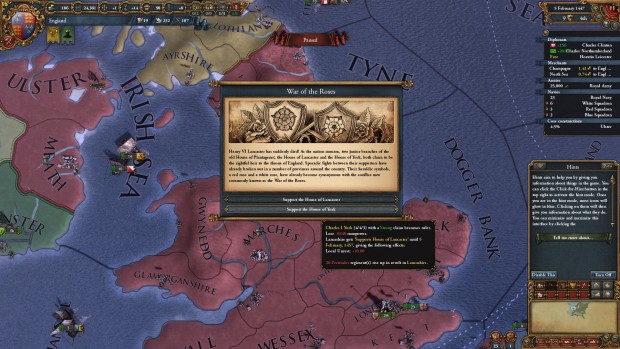
My Golden Horde experience was the one part of the new expansion that I felt was a bit uneven. In order to appease my tribesmen, and keep up what is termed “Tribal Unity,” I was forced to fight my neighbors, and take provinces. In EU4, when you first take a province, you must “core” it to reduce the risk of revolt and gain taxes from its citizens. When a tribal state takes a province, they have to raze it in order maintain tribal unity, and not risk the harsh penalties associated with low unity. You can’t raze a cored province, meaning that you are forced to either take provinces and never core them, risking revolt and never truly expanding, or you constantly stay at war to keep adding provinces. Being at war like that tends to put you on the wrong side of your neighbors, meaning that you are either courting coalition-led disaster or watching your country stagnate. It felt weird within the EU4 system, and not particularly fun.
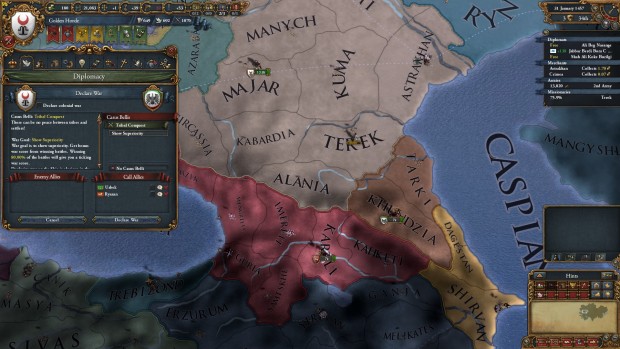
Cossacks added a few other options in the expansion. These included a national policy toward natives while colonizing (yes!), the ability to change culture of your provinces, and some new diplomatic/espionage options. These aren’t huge changes, but are nice throw-ins with the estate system.
A quick read of the history of the Thirty Years War shows Austria a slave to its estates, economically destitute without them. Much of the struggle the English had in the 17th century was due to struggles between the monarchy and its economic dependents on its estates. And, of course, the French revolution’s example, with its Estates General and Tennis Court oath, are well known to history. Cossack’s great success is adding this system seamlessly into EU4’s already fantastic system, taking a game that was already quite compelling, and making it even better.
